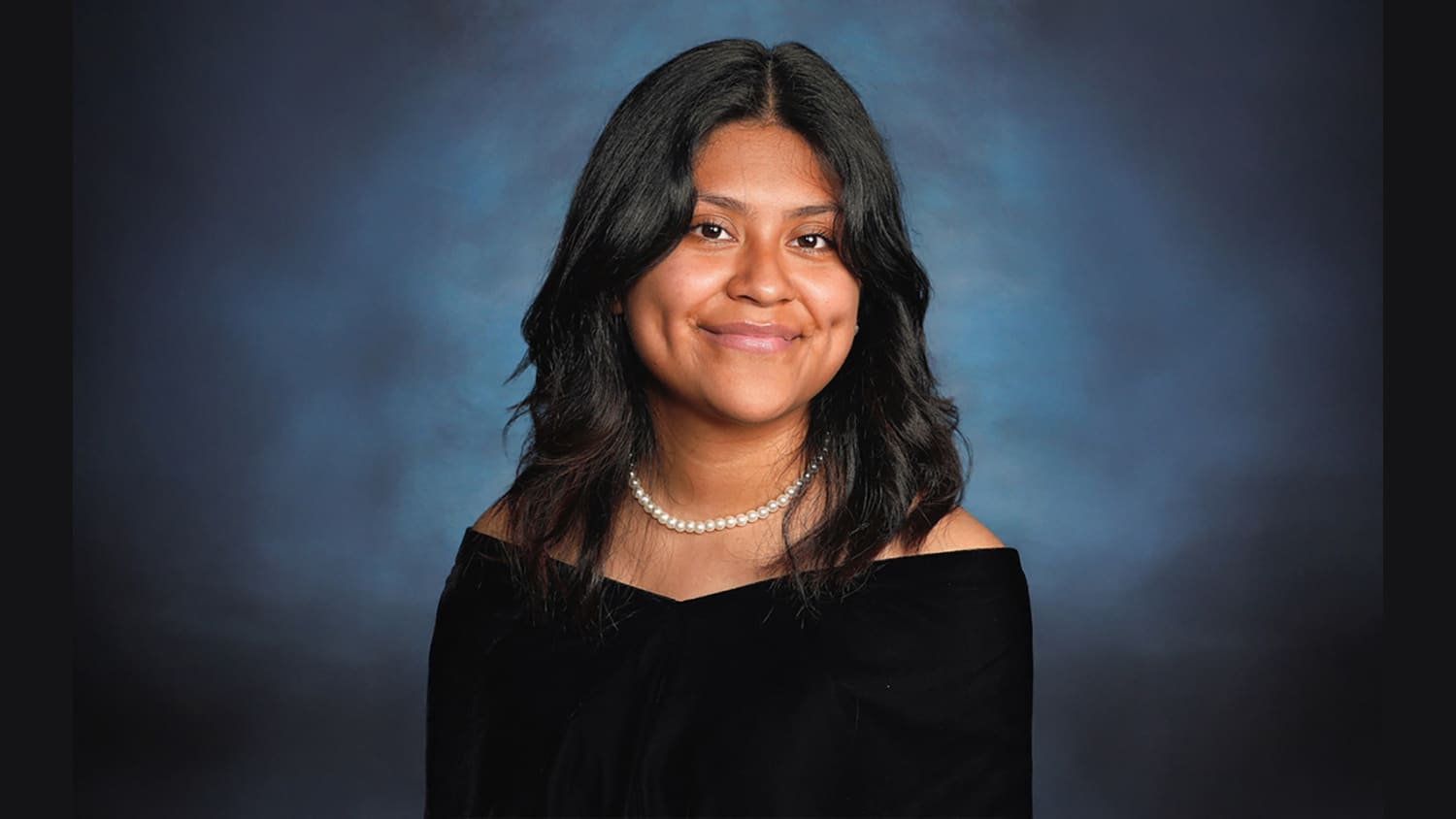Confirming Commitment to Online Course Quality
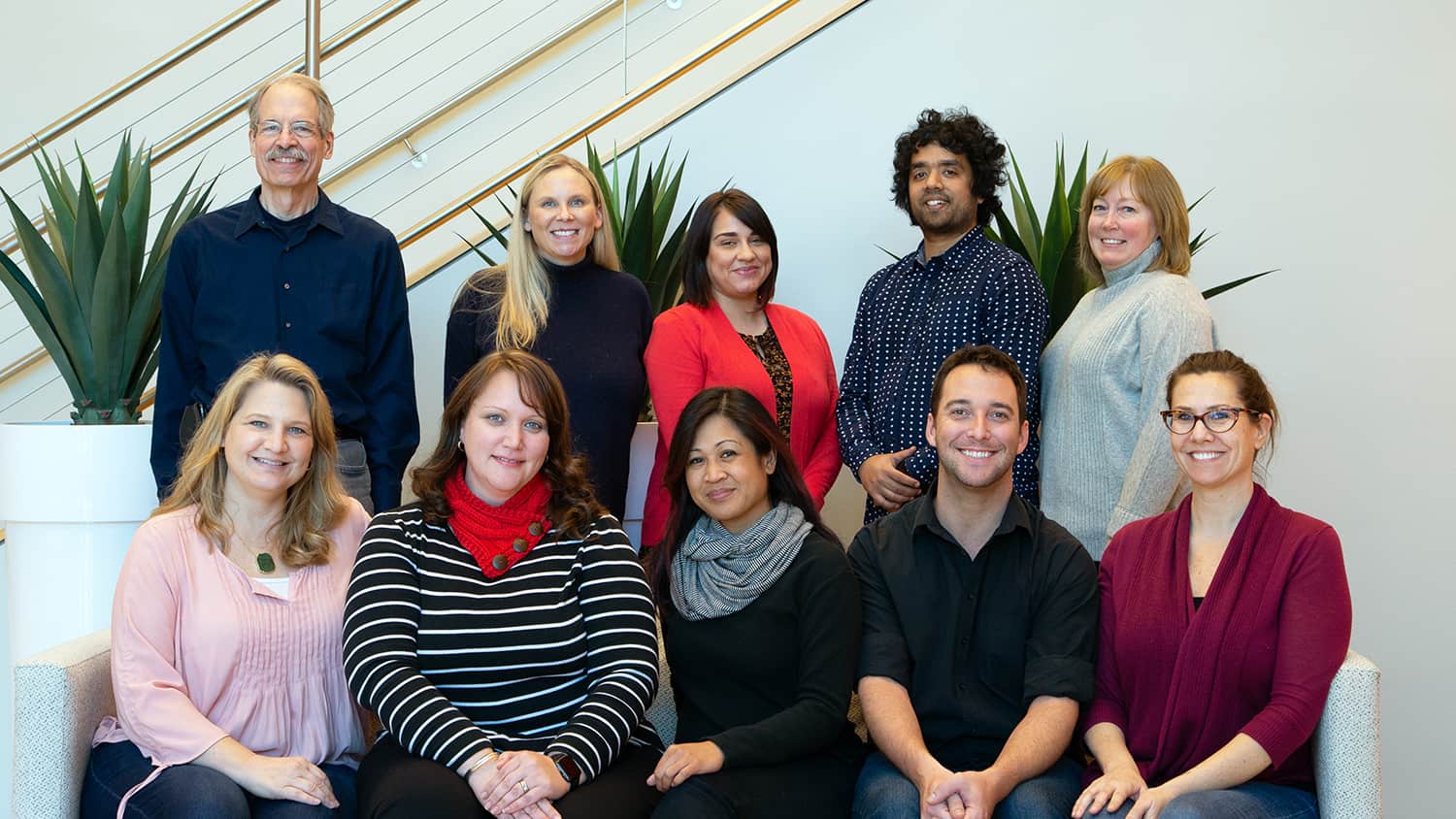
The Online Course Improvement Program (OCIP) is a testament to NC State’s commitment to quality teaching and learning and providing online and distance education students with the same extraordinary experience as they would receive in person.
The new group of dedicated faculty who make up OCIP’s third cohort is on the mark to continually improve the design of their online course to meet the rigorous standards of the Quality Matters (QM) organization.
Throughout the 16-week program, the spring 2019 OCIP cohort work collaboratively with each other and DELTA staff through online asynchronous training, face-to-face meetings, individual consultations and more to prepare their courses for an official QM review at the end of the program.
The official QM course review is faculty driven where a three-person team from across the nation conducts a peer review of the course. The extensive eight-week process provides faculty with not only a QM certification but rich feedback on how to continuously improve the course.
Meet the Spring 2019 OCIP Cohort
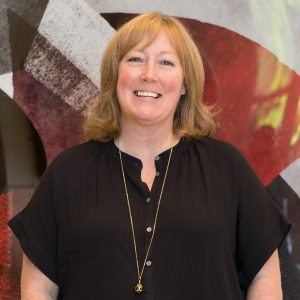 Lecturer Christine Cranford, who completed OCIP in fall 2018 and is in the process of certifying her ENG 331: Communication for Engineering and Technology course, learned so much in the fall that she wanted to continue with OCIP this spring to make improvements to ENG 332: Communication for Business and Management.
Lecturer Christine Cranford, who completed OCIP in fall 2018 and is in the process of certifying her ENG 331: Communication for Engineering and Technology course, learned so much in the fall that she wanted to continue with OCIP this spring to make improvements to ENG 332: Communication for Business and Management.
“I applied the work I did last semester to my current ENG 331 online course, and I can tell overall the course is a lot clearer to students,” Cranford said.
Cranford is also serving as the faculty lead and provides additional support to the OCIP cohort in the online training and face-to-face meetings.
“I serve as a mentor, somebody that has been through the program and can offer experience and suggestions as we develop our courses to meet the Quality Matters standards,” Cranford said.
“Working with faculty members who are outside of my department offers a new perspective. We share ideas and different ways to approach class materials, assignments, and assessments. Working with faculty members from other disciplines is one of the strengths of the Online Course Improvement Program,” she added.
 Teaching Assistant Professor Peter Hessling teaches ELP 344: School and Society in the Department of Educational Leadership, Policy, and Human Development.
Teaching Assistant Professor Peter Hessling teaches ELP 344: School and Society in the Department of Educational Leadership, Policy, and Human Development.
Hessling sees participating in OCIP and the Quality Matters certification as an opportunity to reach his students better — students who will soon be teachers and have students of their own.
“Most of my students are going into teaching. Since they will at least in part be teaching online, wouldn’t it be great to model really good online teaching practices for them?” he said. “Quality Matters is not only for my own class but for my students’ classes.”
Hessling received a DELTA Grant in 2015 where he worked with former Instructional Designer Dan Dunnagan to conceptually transform his course. This work set his course up for success in OCIP.
Another benefit of OCIP for Hessling is the confidence he hopes to gain in areas such as instructional video and creating solid course objectives — similar to the confidence he gained after finishing his DELTA Grant.
“When I finished my year with Dan [DELTA Grant], I wasn’t afraid of technology anymore. If I didn’t know how to do something, before I would say, ‘I won’t do that,’ now I’ll say, ‘I’ll give it a shot,’ It was a real change in attitude toward using technology,” he explained.
This attitude has enabled Hessling to dive in with OCIP in his pursuit of quality online courses. “I want online students to have the same kind of quality experience as if they were taking it here,” he added.
 Postdoctoral Research Scholar Muntazar Monsur considers himself an enthusiast for online education. He works with the Natural Learning Initiative (NLI) in the College of Design and co-teaches LAR 582: Introduction to Environment and Behavior for Designers with Research Associate Professor Nilda Cosco.
Postdoctoral Research Scholar Muntazar Monsur considers himself an enthusiast for online education. He works with the Natural Learning Initiative (NLI) in the College of Design and co-teaches LAR 582: Introduction to Environment and Behavior for Designers with Research Associate Professor Nilda Cosco.
Because of his previous experience with DELTA Grants, Monsur became interested in OCIP as he was preparing to teach the LAR 582 course for the first time since 2016.
“Courses in architecture and landscape architecture (my two major fields of interest) are mostly taught in studio environments and are very challenging to teach online. From this program, I am looking forward to enhancing my understandings in online course development in the fields of design,” Monsur said.
“So far, the OCIP training is a revelation for me about the seriousness and attention required for creating a functioning online learning environment for students,” he added.
With the NLI, Monsur sees first hand the importance of online courses that meet the needs of a wide audience. The NLI offers an online certificate course for early childhood educators, many of whom do not have the time or resources to take a face-to-face class so the online certificate is vital for them.
“Online courses are going to play a major role in the future of education, and quality assurance for online courses is critical to ensure student success,” he said.
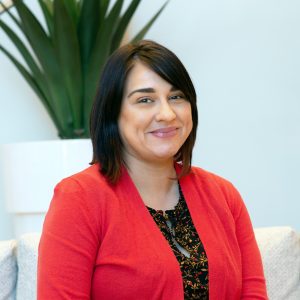 Teaching Assistant Professor and DELTA Faculty Fellow Melissa Ramirez has been teaching online in the Department of Biological Sciences for several years and also coordinates the Microbiology Undergraduate Certificate.
Teaching Assistant Professor and DELTA Faculty Fellow Melissa Ramirez has been teaching online in the Department of Biological Sciences for several years and also coordinates the Microbiology Undergraduate Certificate.
Ramirez jumped into OCIP to not only evaluate her own course but to identify the best practices to recruit faculty in her department to develop their own online and distance education course for the certificate.
With research interests focused on inclusion in STEM education, Ramirez has goals to make sure all of her online and distance education courses are inclusive and as accessible as possible for students. She is interested in using Universal Design for Learning to provide students with alternate ways to perceive and demonstrate their mastery of content.
“OCIP is giving me the time and resources to really explore aspects of my course with Universal Design Learning in mind,” she added.
On the importance of quality online courses, Ramirez said, “Giving students the autonomy to pace their coursework according to their schedules means we can serve students who otherwise couldn’t make it to campus for a class at a set time. We are able to reach more students and make education more accessible, which should serve as a guiding principle, especially for those of us at land-grant institutions.”
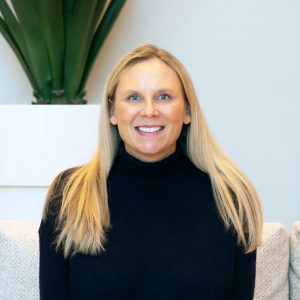 Teaching Associate Professor Julianne Treme completed a Rapid Design DELTA Grant in fall 2018 and was interested in the next steps to continue improving her ARE 201: Introduction to Agricultural and Resource Economics course.
Teaching Associate Professor Julianne Treme completed a Rapid Design DELTA Grant in fall 2018 and was interested in the next steps to continue improving her ARE 201: Introduction to Agricultural and Resource Economics course.
For Treme, getting to know her OCIP cohort who have similar interests in online quality was key to participating.
“Every discipline does things differently and sometimes what is standard in one is revolutionary in another. Being able to apply different tools or techniques to my existing courses is exciting and being able to troubleshoot these with people that have already done it is the most efficient approach,” she said.
She also notes that greater numbers of faculty participating in OCIP and earning Quality Matters certifications for their courses positively impact both students and faculty at NC State as the online course value and experience is improved.
“Online courses are only becoming more popular and as more and more students enroll, the quality of the online course must keep pace as class sizes increase and the course is offered more frequently. This program offers faculty a terrific opportunity to learn about best practices and ensuring that students are assessed appropriately given the course’s goals,” she added.
Creating a Culture of Quality Assurance
The collaborative OCIP effort is facilitated by QM Coordinator and Lead Instructional Designer Bethanne Tobey along with DELTA staff members Christopher Beeson, Arlene Mendoza-Moran, Rebecca Sanchez and Bethany Smith.
Each DELTA staff member is paired with one of the OCIP faculty members to serve as a mentor and receives one-on-one consultations to review progress and work through challenges.
At the end of OCIP, this group plans to add five more courses to the growing list of Quality Matters-certified courses at NC State.
OCIP continues to have success in helping faculty learn about and continually improve their courses based on the Quality Matters standards.
Tobey and her team are also hosting Quality Matters’ flagship workshop Applying the Quality Matters Rubric on March 12, 2019, and will offer other workshop opportunities focused on QM in the future.
To learn more about Quality Matters at NC State, visit go.ncsu.edu/qualitymatters.
This post was originally published in DELTA News.
- Categories:
